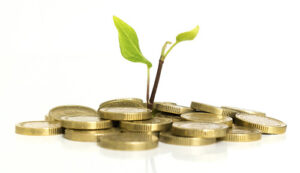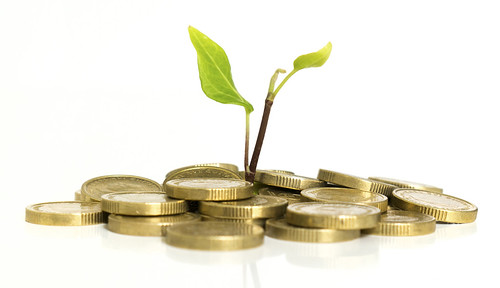Investing in the stock market can produce a substantial return, or it can lead to big losses. Because market crashes can impact many types of corporations at once, it’s a good idea to diversify your portfolio with investments unrelated to the stock market. The right investments can also enhance your returns. Here are some of the best alternatives to investing in the stock market.
-
Real Estate
Despite the 2008 financial crisis, real estate is usually a good investment. You can buy a house, a duplex, a multifamily dwelling like an apartment complex, an office building, or a warehouse. Then, you can make repairs and improvements and sell it for more than you paid, or you can get a regular income by renting it to individual tenants or a business.
Before you invest in real estate, be aware of the expenses. Closing costs for real estate agents are usually between 2% and 5% of the property’s total price. For a $100,000 house, that would be $2,000. If you use a mortgage, you must pay interest on the loan, but you won’t need the entire amount immediately. To act as a landlord, you’ll need to provide regular maintenance and sign rental agreements with tenants.
You’ll also need to pay for insurance and property taxes. Before you buy a property, do plenty of research to make sure it’s a good investment. Conduct thorough inspections, and consider hiring a professional appraiser or home inspector. If you’re looking for a simpler real estate investment, consider farmland, timberland, or lots in a suburb. They require little to no maintenance, and property taxes are lower. You can also decide whether you want to build something on the property yourself or sell it to another individual.
Real estate returns are reliable, but the investment isn’t without risk. If your expenses are higher than the appreciation of the property or the amount you receive in rent, you could lose money. Also, remember that selling a property for a good price could take months. You might not be able to liquidate your investment immediately if you decide you want the cash or if prices in the area start to drop.
-
Private Lending
With private lending, you lend your own capital to other investors or real estate funds managed by professionals. Instead of a traditional bank, you act as a lender alone or with other investors. These loans usually involve some types of collateral, and people can use them to buy real estate. You can repossess the collateral and sell it if the borrower can’t make the payments you agree on, and you’ll gain returns through interest if the borrower makes payments on time. That way, you can invest in real estate without worrying about expenses such as maintenance, insurance, and property taxes.
With a real estate debt fund, you can invest with many other lenders. Then, the fund will distribute loans to many borrowers. With private lending, you won’t get all of your investment back until the loan term ends, and you won’t be able to liquidate your investment before then. However, the returns are usually much better and more reliable than liquid investments such as the stock market.
-
Gold
Gold has been valuable around the world for thousands of years, and it’s one of the most reliable investments. When the rest of the economy isn’t doing well, the price of gold usually rises because people are looking for more dependable investments. Inflation raises the price of gold as well. You can buy physical gold bullion or coins, or you can invest in futures or bonds.
Physical gold is one of the most liquid assets, and you can sell it in an emergency to pawn shops and jewelers. However, when the economy isn’t in a downturn, the price of gold won’t rise much. It’s an extremely safe investment, but you can find many more profitable options if you’re willing to expose yourself to some risk.
-
Other Commodities
You can invest in many commodities besides gold, including silver, aluminum, corn, and soybeans. The prices of commodities increase when demand increases, and they often rise and fall along with the rest of the economy. While you can buy commodities directly, most people invest in them with futures or bonds instead. You can invest in commodity producers such as farming or mining businesses, as well.
-
Currency

Image via Flickr by free pictures of money
Your money’s buying power fluctuates with the value of the dollar. Fortunately, you can diversify the types of currency you hold along with your other investments. Investing in several currencies helps you avoid the risks of inflation. Some of the most stable currencies for investment are:
- The European euro
- The Swiss franc
- The Japanese yen
- The Swedish krona
- The Norwegian krone
- The UK pound sterling
- The Australian dollar
- The Singapore dollar
You can also invest in a cryptocurrency such as Bitcoin. These types of assets are relatively new, but so far they have continued to gain value.
-
Collectibles
Everything from coins to baseball cards to antique cars can fit in this category. If you already collect something as a hobby, you might be able to use your knowledge to make larger investments by acquiring valuable items that stand to become even more costly. You can also invest in fine art and fine wine.
Before you decide to buy a collectible, research past prices for the item or ones like it, and ask for a certificate of authenticity or another method of proof to avoid counterfeiters. You might need to insure extremely valuable items, and you might not be able to sell your collectibles immediately in an emergency.
To learn more about your investment options, contact Titan Funding. Our team of experienced financial professionals can help you decide on the best investments for your needs, whether you’re an experienced investor or a beginner who wants to add to your savings with some good returns. We’re open on weekdays from 9 a.m. to 6 p.m.

